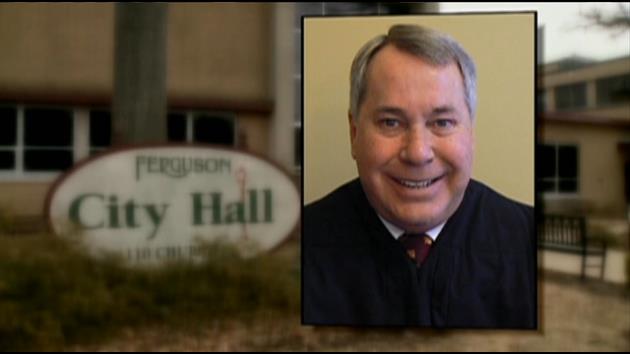By DAVID A. LIEB
Associated Press
JEFFERSON CITY, Mo. (AP) — A Missouri appeals court judge has been appointed to make “needed reforms” in Ferguson’s municipal court system, which was sharply criticized in a recent U.S. Department of Justice report spurred by the fatal police shooting of Michael Brown.
Roy L. Richter, assigned Monday by the Missouri Supreme Court to hear Ferguson’s pending and future municipal court cases, takes over on March 16 for Ronald J. Brockmeyer, who resigned on Monday. The high court said Richter will have the authority to overhaul court policies to ensure defendants’ rights are respected and to “restore the integrity of the system.” The Supreme Court is also assigning staff from the state court administrator’s office to aid Richter in reviewing Ferguson’s municipal court practices.
“Judge Richter will bring a fresh, disinterested perspective to this court’s practices, and he is able and willing to implement needed reforms,” Chief Justice Mary Russell said in a written statement. “Extraordinary action is warranted in Ferguson, but the Court also is examining reforms that are needed on a statewide basis.”
Mayor James Knowles III told The Associated Press the city would begin seeking Brockmeyer’s permanent successor on Tuesday.
The Ferguson City Council met in closed session Monday evening, but members left without taking questions and a city spokesman didn’t disclose the purpose of the meeting. Ferguson City Manager John Shaw was escorted to his vehicle by a police officer without fielding questions.
The pivot to Richter comes after the Justice Department released a report last week that cited cases of racial profiling and bigotry by police and chided what it described as a profit-driven municipal court system in the predominantly black St. Louis suburb where Brown, 18, was shot by a white Ferguson police officer on Aug. 9. The shooting prompted protests in the St. Louis area and across the nation.
A St. Louis County grand jury and the U.S. Justice Department both declined to bring charges against Officer Darren Wilson, who resigned from the department. The Justice Department report said Wilson acted in self-defense when he shot Brown.
But the Justice Department said Ferguson’s police and court systems functioned as a money-making enterprise that heightened tensions among residents.
The federal report noted that Ferguson was counting on revenues from fines and fees to generate $3.1 million, or nearly one-quarter of its total $13.3 million budget for the 2015 fiscal year.
Although it was rare for the court to sentence people to jail as a penalty for city code violations, the Justice Department report said the city’s court almost always imposes monetary penalties and then issues arrest warrants when people fail to pay on time or miss a court date. As a result, relatively minor violations can — and frequently do — lead to arrests and jail time, the report said.
The federal report also cited several instances in which Ferguson’s municipal judge, court clerk or city prosecutor helped “fix” tickets for colleagues and friends.
The report cited the forgiven tickets for Ferguson officials as evidence of “a double standard grounded in racial stereotyping.” It said Ferguson officials displayed “a striking lack of personal responsibility among themselves” while some nonetheless asserted to federal investigators that the city’s African-American residents lacked “personal responsibility.”
Attorney Bert Fulk said in a statement announcing Brockmeyer’s resignation that Brockmeyer had been “fair and impartial” as a part-time judge and that the court clerk bore the primary responsibility for the day-to-day operations of the court.
The city fired court clerk Mary Ann Twitty last week.
Missouri Gov. Jay Nixon, in a statement Monday, praised the “strong and appropriate actions by the Missouri Supreme Court” to overhaul the Ferguson municipal court.
Monday’s appointment of a new Ferguson judge drew mixed reviews among a smattering of onlookers at that night’s council meeting. Derrick Robinson, a protest organizer, said the move was “letting us know they’re hearing our cry, and I think it’s a good step in reconstructing Ferguson.” Meldon Moffitt, of St. Louis, countered it wouldn’t make anything better, adding “the only way we can clean up Ferguson is to wipe out the police force, wipe out the courts and wipe out the judges.”
——
Associated Press writers Jim Suhr and Jim Salter contributed to this report from Ferguson.
Copyright 2015 The Associated Press. All rights reserved. This material may not be published, broadcast, rewritten or redistributed.

